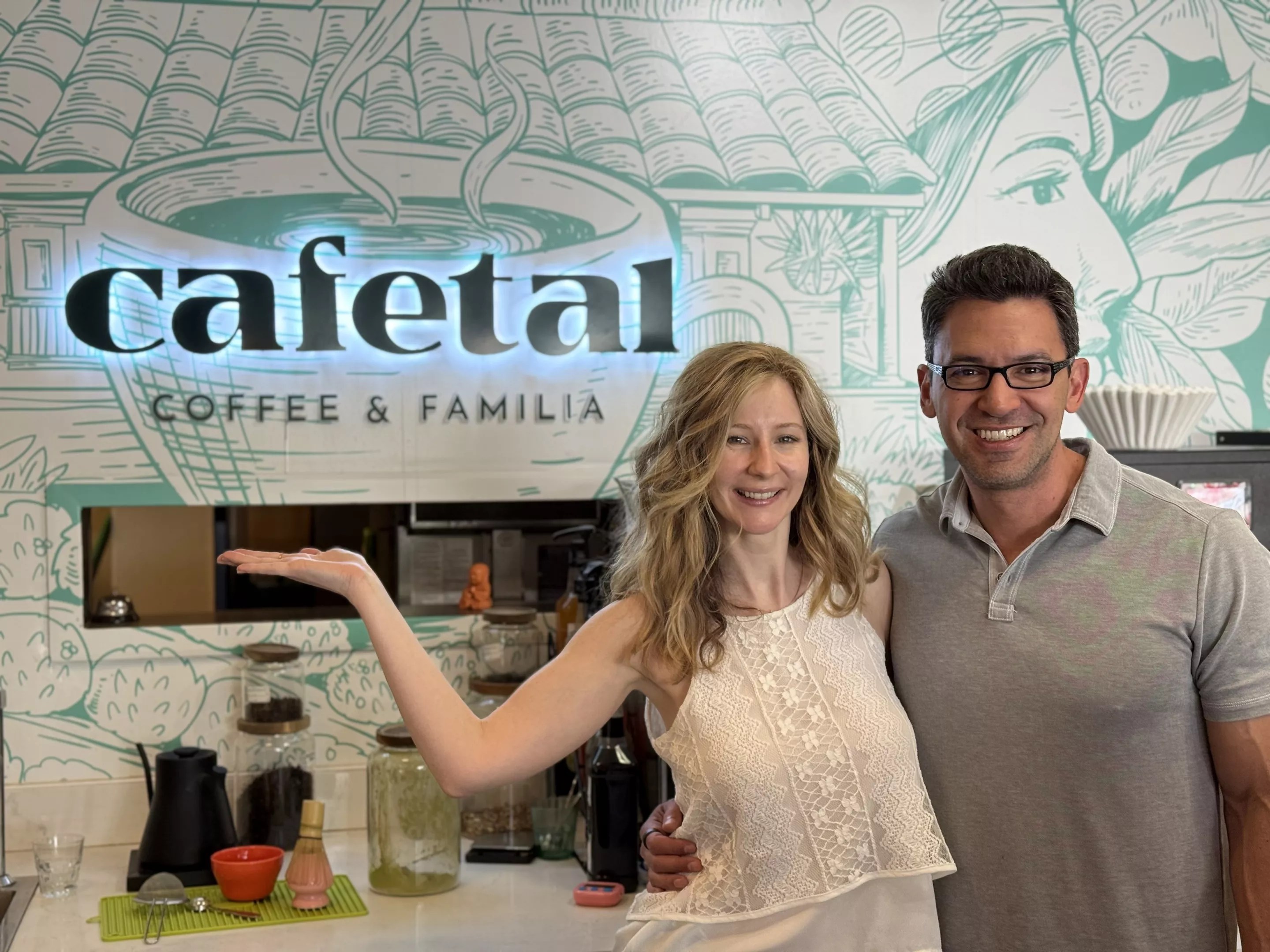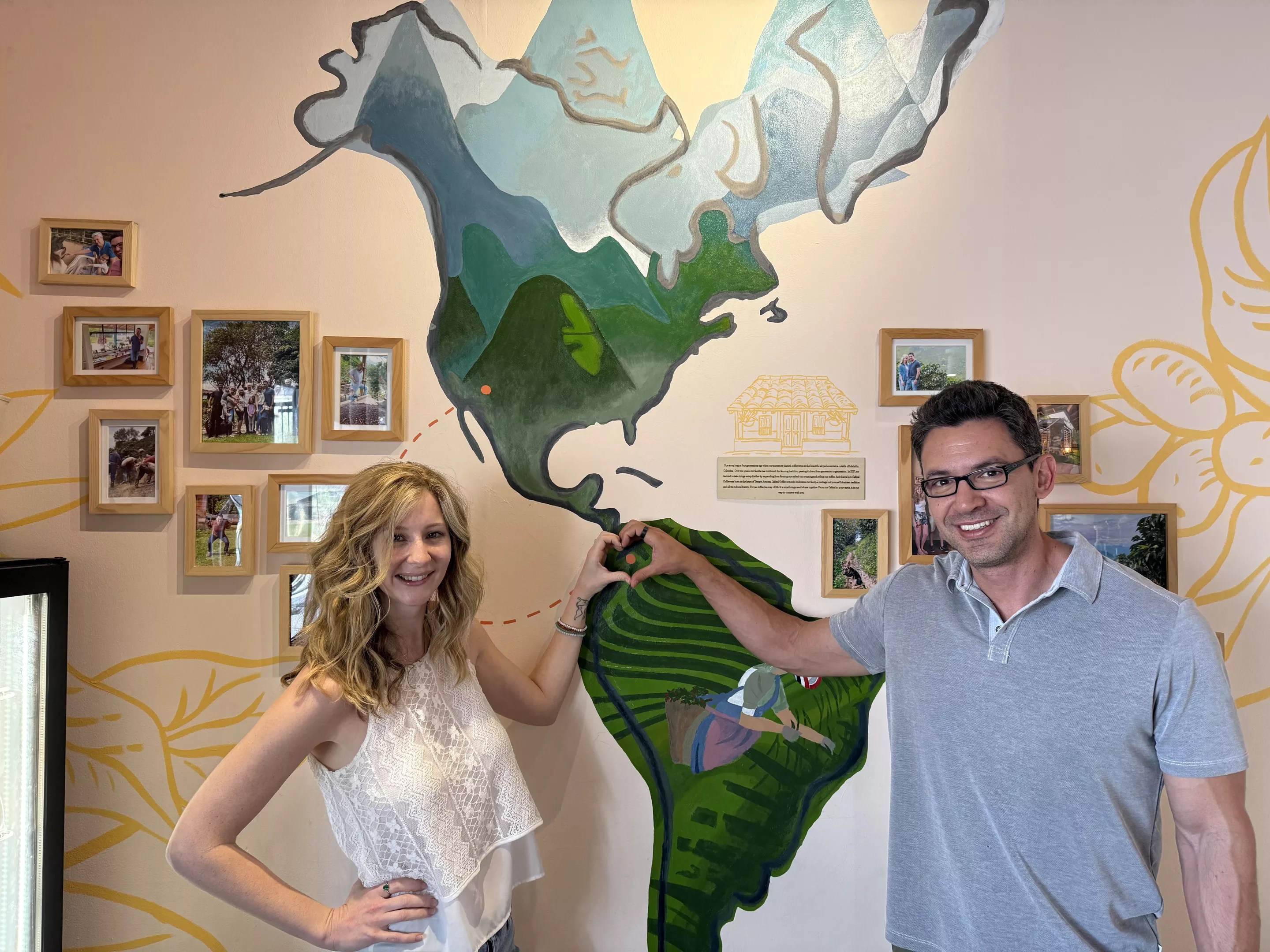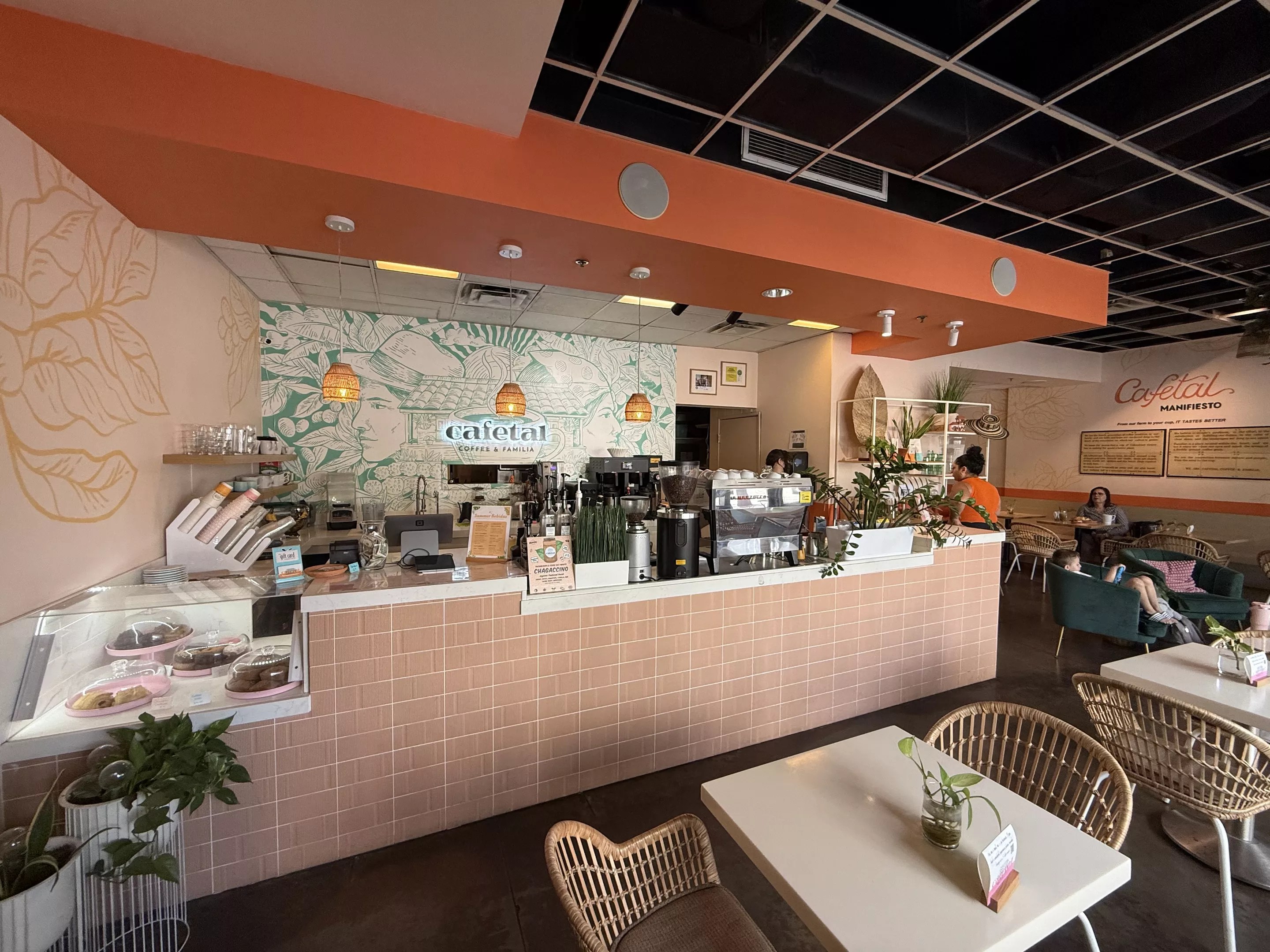
Ofelia Montelongo

Audio By Carbonatix
Tempe’s Cafetal Coffee is a neighborhood cafe shaped by Colombian roots and local connections. Owners Sebastian and Nikki Ramirez have built the shop through years of adaptation, from reviving secondhand equipment to developing a menu that reflects their heritage, their staff and the community they serve.
Their journey begins far from Arizona, in the lush coffee-growing regions of Colombia, where the owners’ family has cultivated coffee for generations. This heritage inspired a dedication to the “crop-to-cup” mission that is at the core of everything they do.
“Our parents had farms and coffee plantations,” Sebastian says. “We didn’t grow up doing that, but we always knew that was part of our family history.”
He explained how the name “Cafetal,” which means coffee plantation in Spanish, serves as a direct nod to those roots.
“The farm was started by Sebastian’s great-grandfather and is still running since 1960,” Nikki says, explaining that Sebastian’s family were pioneers in planting coffee in the mountains around Santa Barbara, Colombia. Sebastian’s parents now own and operate the coffee farm.
“The coffee is processed on the farms in Colombia – whether it’s washed, natural or honey processed – and then it’s sent to us in its green form,” Nikki says. “Sebastian roasts the beans here, either with a light or medium profile, depending on the coffee. Then we bag it and bring it to the store to sell or serve.”

Nikki and Sebastian Ramirez
Ofelia Montelongo
Inside the cafe, visitors are immersed in the family legacy and greeted by warmth and creativity. The walls are adorned with a vibrant mural depicting a map of the Americas, paintings from local artists and photographs of the farm and family.
“We want people to see where we come from,” Sebastian says.
Like many small businesses, Cafetal Coffee faced its share of challenges, especially during the early days of the pandemic. From navigating lockdowns to adapting their kitchen and service model, the journey tested their resilience.
“It was hard,” Sebastian recalled. “We had to be resourceful. We didn’t have the budget to get everything we wanted, but we made it work.”
Nikki explains that they began channeling their creativity into the kitchen, starting with items like bagels, and their offerings grew from there. They developed their food menu gradually, relying on the staff’s ideas and energy.
Currently, Cafetal’s menu includes tea, aguas frescas, agua panela, smoothies and arroz con leche, alongside food items like arepas, empanadas, pandebonos (a classic Colombian cheese bread), quesadillas, breakfast sandwiches and avocado toast. They also have seasonal menus.
The bagels, arepas, and empanadas are locally sourced, adding a community-focused layer to their Colombian flavors.
“We buy a lot from our Colombian neighbors in Mesa who own La Tiendita. We also have a French baker who we buy the most delicious croissants from. Him and his son own JC’s Bakery,” Nikki says.
The team culture at Cafetal is rooted in openness and collaboration.
“Whenever we hire a new employee, we ask if they have any special talents. ‘Do you like to take photos? Do you like to sing? Do you want an open mic?'” Sebastian says.
In the past, they have collaborated with CALA Alliance and hosted a DJ night. Their employees have contributed artwork and hosted events such as open mics, turning the cafe into a living, breathing cultural hub.

The cafe is a popular gathering space and the owners say some neighbors have started calling Cafetal the “North Office.”
Ofelia Montelongo
The warm, homely yet modern atmosphere draws in students and faculty from the neighboring Arizona State University buildings, along with members of the wider community.
“Anyone who walks through this door should feel welcome. This is a very inclusive environment,” Sebastian says.
The cafe has earned a nickname among neighboring businesses.
“Some people in the center – they call this the North office,” Sebastian says with a laugh. “Like, ‘Oh, we’ll meet at the North office.'”
Always thinking ahead, Cafetal’s owners are exploring the possibility of launching a coffee cart to bring their signature Colombian coffee and community vibe to festivals, markets and city events throughout Tempe.
Cafetal Coffee continues to grow as a space that blends culture, connection and creativity all grounded in a deep respect for where the journey began.
Cafetal Coffee
777 S. College Ave., #101, Tempe